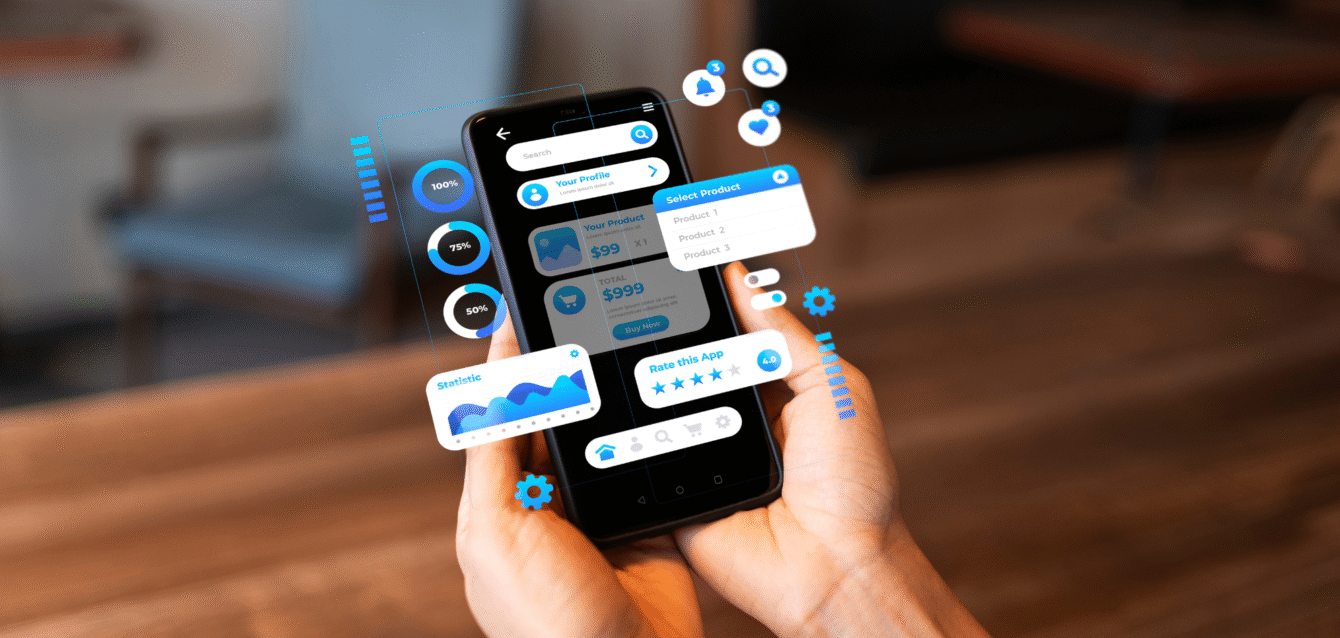Patient engagement often struggles because hospitals still use systems that slow down communication and care coordination. Many workflows rely on manual steps that delay even basic tasks.
Appointment scheduling involves repeated phone calls, patient queries are passed through busy desks, and follow-ups are tracked using spreadsheets or paper logs. These disconnected processes make it difficult for staff to stay informed and for patients to feel supported. We’ve seen how these gaps lead to missed updates, slower responses, and a care experience that feels impersonal.
When systems don’t connect well, both patients and care teams face more effort than necessary.
The Rise of AI Chatbots in Healthcare
The healthcare sector is notoriously complex, with hospitals juggling patient inquiries, appointment scheduling, follow-ups, and administrative tasks daily. Traditional communication methods often fall short in meeting patient needs efficiently.
This is where AI chatbots in healthcare step in. These virtual assistants are designed to handle routine tasks, respond instantly to patient queries, and offer 24/7 support. For hospital administrators, this means:
- Reduced workload for staff
- Faster response times
- Consistent communication
- Improved patient satisfaction
For hospital administrators, the adoption of AI chatbots means more than just automating responses. It’s about delivering personalized, timely, and consistent patient interactions. This approach can lead to improved patient satisfaction, higher retention rates, and a more streamlined operational workflow.
Understanding the technology is essential, but the real value lies in how hospitals implement it to meet patient expectations.
How AI-Driven Patient Engagement Enhances Hospital Operations
AI chatbots offer hospitals a unique opportunity to optimize operational efficiency while improving the patient journey. Here’s how AI-driven patient engagement transforms hospital operations:
- Streamlined Appointment Scheduling
Patients no longer need to wait on hold or navigate complex phone menus. - Virtual assistants in healthcare can schedule, reschedule, and cancel appointments in real-time, reducing administrative burden and improving patient convenience.
- Instant Response to Patient Queries
AI chatbots are capable of answering frequently asked questions instantly, ranging from consultation fees to visiting hours, medication instructions, and post-operative care guidelines. This reduces the strain on hospital staff while maintaining high-quality patient communication. - Enhanced Patient Education and Awareness
Chatbots can provide personalized information about treatment options, lifestyle advice, and preventive care. For healthcare leaders, this proactive engagement builds trust and encourages patients to actively participate in their care plans. - Data-Driven Insights for Decision Making
Advanced AI chatbots collect valuable patient interaction data. This information helps hospital administrators understand common patient concerns, peak inquiry times, and engagement trends. Such insights empower hospitals to allocate resources more efficiently and design better patient-centric strategies.
While operational efficiency is essential, the ultimate goal of AI chatbots is to improve patient satisfaction and loyalty.
Patient-Centric Benefits of AI Chatbots in Healthcare
At the heart of every hospital initiative is the patient. AI patient engagement offers several direct benefits:
- 24/7 Availability: Patients get support anytime, reducing anxiety and delays.
- Personalized Interaction: Chatbots adapt responses based on patient history and preferences.
- Continuity of Care: From medication reminders to post-discharge follow-ups, chatbots ensure patients stay engaged.
- Reduced Stress: Quick, reliable answers help patients feel informed and supported.
For healthcare business owners, these benefits translate into better reviews, stronger retention, and increased revenue.
Strategic Implementation of AI Chatbots in Hospitals
Strategic Implementation of AI Chatbots in Hospitals
Healthcare leaders considering AI adoption should focus on strategic integration rather than just technology deployment. Here are key considerations:
- Identify Key Use Cases: Focus on areas where chatbots can add the most value—appointment management, patient education, billing inquiries, or pre-surgical guidance.
- Ensure Seamless Integration: Integrate chatbots with existing Electronic Health Records (EHRs), patient portals, and CRM systems to ensure smooth data flow and personalized experiences.
- Focus on Compliance and Security: Ensure chatbots adhere to HIPAA and other local regulations to protect patient privacy and maintain trust.
- Leverage Multichannel Access: Deploy chatbots across websites, mobile apps, and messaging platforms to meet patients where they are most comfortable.
- Continuously Monitor and Improve: Use analytics to track patient engagement, identify gaps, and refine chatbot responses for better performance.
While hospitals focus on operational efficiency and patient satisfaction, it is essential to understand the financial impact of adopting AI chatbots.
Financial Implications and ROI
Investing in chatbots in healthcare is not just a technological decision—it’s a financial one. Implementing AI-driven engagement can significantly reduce costs by:
- Minimizing manual administrative tasks.
- Reducing no-show rates through automated reminders.
- Lowering call center expenses.
- Improving patient retention and satisfaction, which indirectly enhances revenue.
Healthcare business owners can expect a clear ROI by strategically leveraging AI chatbots, ensuring both cost optimization and improved patient care.
Understanding the practical benefits is important, but healthcare leaders often have specific questions before implementation.
How CaliberFocus Delivers AI Chatbot Solutions for Hospitals
At CaliberFocus, we understand the real-world challenges hospitals face in managing patient engagement. Backed by 20 years of healthcare and technology experience, our AI chatbot solutions are designed to simplify communication, reduce manual workload, and improve the overall care experience. We build chatbot systems that match your hospital’s workflows, meet compliance standards, and support patient expectations through tailored design and integration.
- Tailored Mapping of Patient Engagement Use Cases: We work closely with hospital teams to identify the most impactful areas for chatbot deployment—whether it’s appointment scheduling, patient education, or billing support.
- Secure Integration with Hospital Systems: Our chatbots integrate seamlessly with EHRs, CRMs, and patient portals, ensuring smooth data flow and personalized interactions.
- Compliance-Driven Solution Design: Every solution is built with HIPAA and local data protection standards in mind.
- Deployment Across Patient-Facing Channels: We enable chatbot access across websites, mobile apps, and messaging platforms to meet patients where they are.
- Ongoing Performance Monitoring and Optimization: Using real-time analytics, we help hospitals monitor engagement and fine-tune chatbot performance for better outcomes.
With CaliberFocus, hospitals don’t just adopt AI, they implement it with purpose, precision, and measurable impact.




